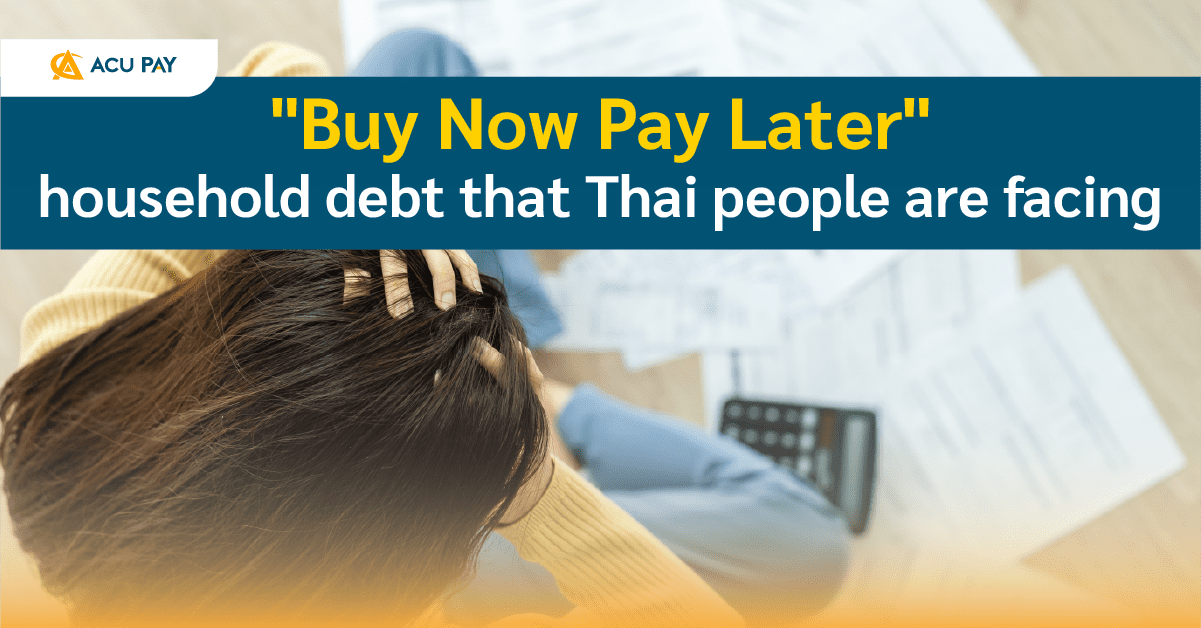

In early August 2023, Credit Buro revealed that Thai NPLs in the second quarter reached THB 1 trillion again and are likely to rise. The ‘Buy first and pay installment later’ may be one of the factors for Thais to build more debt.
With restrictions on credit card applications and loan applications, a new form of payment called ‘Buy Now Pay Later’ (BNPL) is gaining popularity among e-commerce businesses and allows Thai people to create more debt.
Buy Now Pay Later, or BNPL is a type of payment in which we get goods or services first and then pay in full or installment later. Most Buy Now Pay Later payments have no interest, but sometimes the installment may have interest but at a low rate, or interest rates may not be paid at all. It depends on the conditions set by the company.
It has a simple and uncomplicated process to apply, just using an identity sheet or a little bit of financial background check which has led to a boom in Buy Now Pay Later in a few years. There are large customer bases of e-commerce like the ‘Millennials’ and ‘Gen Z’ generations who want to buy in installments, but they do not meet loan approval criteria. The existence of Buy Now Pay Later encourages this group to make purchases easier, which is an opportunity for businesses to increase their revenues at the same time.
The figures for the second quarter of Thai household debt disclosed that more than one-third of Thais are still carrying household debt, rising to THB 15.96 trillion, accounting for 90.6% of GDP.
According to the National Credit Bureau (Credit Buro), the first factor is bad debts during the Covid-19 period, which currently have a total of 4.9 million accounts, approximately 3.7 billion baht, or 3.4 million people who have been in bad debt or financial difficulties during the COVID-19 period. This group are good borrowers who have always paid debt well.
This is due to poor spending behavior. Most of the debts are non-performing loans (NPLs), bad debts of THB 1 trillion are divided into auto debts of THB 200 billion, housing debts of THB 18 billion, and farmers’ debts of THB 60-8 billion. Moreover, the largest amount of bad debt was a personal loan which a person gets a lump sum of loan and then pays in installments of up to THB 250 billion from ‘loan first, pay installment later’.
An alluring loan like Buy Now Pay Later will encourage people to spend too much money and think less, becoming an endless ‘debt trap’ that may affect the economy more than expected.
All types of bad debts are divided into 4 large groups:
All of these problems must be solved quickly, especially in Thailand, which is entering an aging society. The government will have to shoulder more welfare benefits in the future. However, working-age people will earn less income but create more bad debts, which may affect economic growth in the long run and the stability of the country’s financial system.